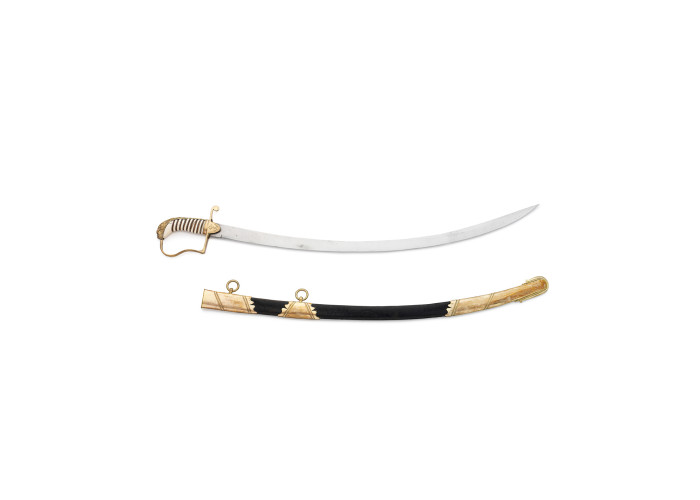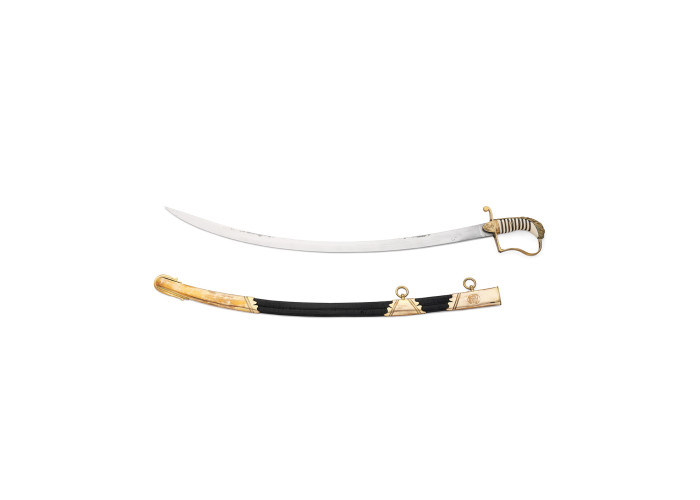Sir John Moore’s Sword
Lieutenant General John Moore was carrying this sword when he was mortally wounded by cannon shot at Corunna (1809). He was the British Army’s most important General, and led the war against Napoleon until his death- when the Duke of Wellington took his place.
He was at the point of achieving the victory over the French that would enable his army to be safely evacuated from Spain. As Moore lay dying, his sword became entangled in his wound. When an aide tried to remove it Moore said: ‘It is better as it is. I had rather it should go out of the field with me.’
John Moore (1761-1809) had been commissioned into the 51st Foot in 1776. He saw service in the American War of Independence (1775-1783), before returning to Britain to serve six years as a Whig MP. He later served in Corsica and the West Indies and was promoted to major general in 1798. In Ireland in the same year he helped to suppress the rebellion, although without the gratuitous brutality that characterized other commanders. He took part in the Flanders expedition of 1799, and served under General Abercromby in Egypt. He also introduced the rudiments of light infantry manoeuvres through a programme of special training at Shorncliffe Camp.
The British became involved in the Peninsular War in 1808. There were two quick victories, at Rolica and Vimeiro. When the Convention of Cintra caused outrage, the three generals who had signed it, Dalrymple, Burrard and Wellesley, were recalled to England to face an enquiry and Moore was given command of the British Army in Portugal.
He advanced deep into Spain, intending to co-operate with the Spanish against the French. The surrender of Madrid and the arrival of Napoleon with an army 200,000 strong forced him to retreat to Salamanca, and then to the north of Spain. Napoleon personally led the pursuit.
In Galicia Moore’s army encountered extreme cold and the collapse of the commissariat system, which caused great suffering. Many men, women and children froze to death as they trudged towards the coast and safety. At Corunna, however, they turned to face the French, now under the command of Marshal Soult. Moore lived long enough to learn that his army had achieved a notable victory.
He was buried in the ramparts of the town. Soult, who was in possession of Corunna after the Royal Navy safely evacuated the British, generously ordered a monument to be erected to Moore in a gesture of respect.
The handsome blade of Moore’s sword is Persian in origin. On Moore’s death the sword passed to his brother, Admiral Sir Graham Moore, who wore it after having it fitted with a naval hilt.
-
Use this image
- License Type: All Rights Reserved
Find it here
This object is in the collection of Royal Green Jackets – Rifles Museum





